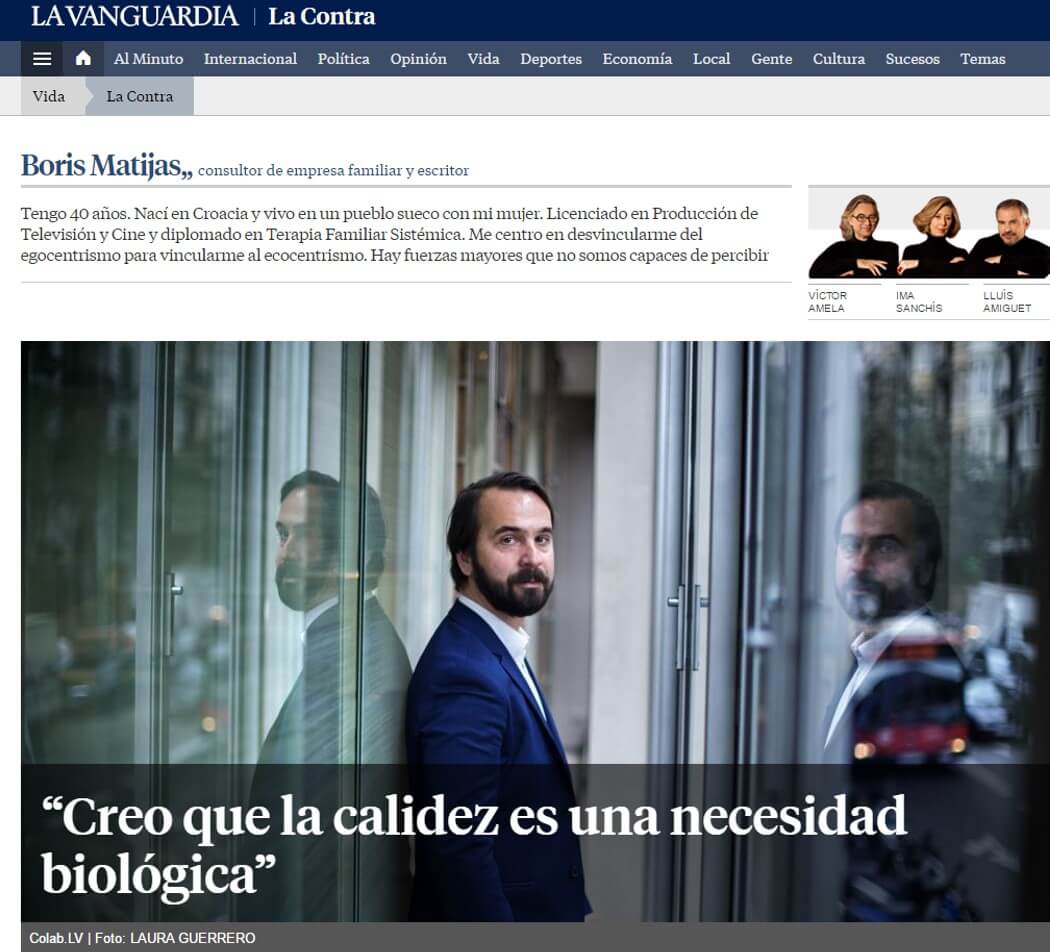Trust with oxytocin. Warmth in human relationships.
Today’s interview, 01/10/17, Boris Matijas (Ima Sanchís) in La Contra de La Vanguardia, “I think warmth is a biological need”, has suggested the possibility of using some of these interviews, always very interesting , to connect what is commented in them with NeuroQuotient.
Today, what has piqued our interest has been the title ‘I believe that warmth is a biological need’. But there is another point in the interview that we think is very pertinent and we will comment on it at the end.
Trust with oxytocin and warmth in human relationships
Lets start by the beginning.
We totally agree with the words of Boris Matijas reflected in the title: ‘I believe that warmth is a biological need’.
Let’s look at it from the point of view of neuroscience.
A work by Michael Kosfeld entitled ‘Oxytocin increases trust in humans’ has become very famous.
It was found that by inhaling oxytocin, people are more willing to collaborate and trust others. The explanation is that oxytocin increases trust because it decreases uncertainty in social relationships. We feel less threatened, calmer; decrease fear.
This happens with trust by inhaling oxytocin. But what about endogenous oxytocin (and we go back to Boris Matijas’ expression about the biological need for warmth)?
Human warmth, feeling the esteem of others, is an internal source of oxytocin and, consequently, of tranquility. This is why it is a biological necessity!
More in women whose body -prepared for motherhood- is more predisposed to generate this neurohormone, oxytocin.
Control, uncertainty and fear
Another quote from the interview that we wanted to comment on is
“Insisting on control is useless in a world of so much randomness.”
We want to control uncertainty – almost always random – to feel calmer, less threatened, less afraid of difficulties. And sometimes we achieve the opposite: to start the system of fear with thought, ‘wanting to face lions where there will never be any’. This is why Matijas does not want to insist on control.
Regarding this last point, it is interesting to return to previous posts referring to prudence and stress.
However, note that the purpose – coping with uncertainty – is very similar to that of confidence with oxytocin. Only that there we seek tranquility by facing difficulties as a team, collaborating with others.




